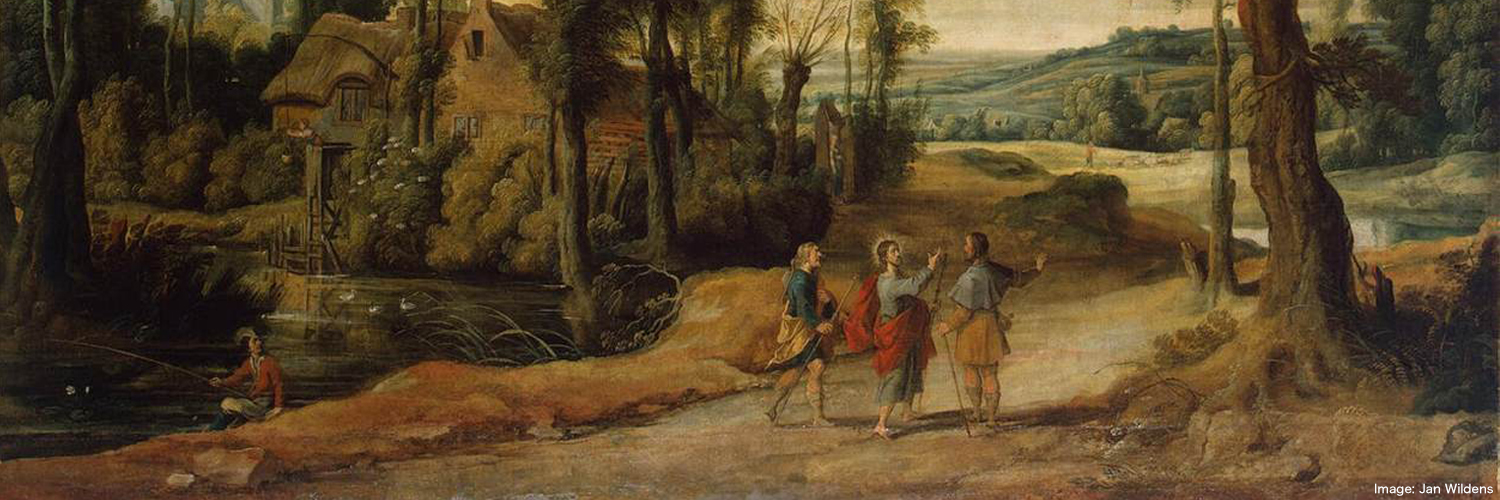We are celebrating Easter, the joyful day of the Resurrection of our Lord Jesus Christ – and of our own coming resurrection. St Paul tells us that “God, who raised up the Lord, will raise us also by his power (1 Cor 6:14; Col 3:1-4), and, in the Second Reading (Col 3:1-9), that because in Christ we are raised, let us look therefore for the values above, that is, the values of the Kingdom of God - dignity, justice, solidarity, prayer, compassion, forgiveness – and joy.
In the First Reading (cf. Acts 10:34, 37-43), Peter proclaims the central content of apostolic preaching, the Jesus event: The Lord suffered, died, was raised - and lives! And in the Holy Gospel (Jn 20:1-9), John speaks of the empty tomb: the tomb where Christ was buried is empty; He is not there. And John believed. “Look at the Risen Lord - St. Teresa of Avila writes -, “Look at the Risen Lord; just to imagine how He came out of the tomb is reason for joy; with what clarity, with what beauty and majesty; so victorious and joyful.”
After his Resurrection, Jesus appeared to the disciples about ten times. The apostles reluctantly accepted the resurrection of Christ: that the Risen Lord was the same crucified Lord – gloriously transfigured but the same Jesus. Once they accepted it fully, what an unimaginable change! Every Easter I am deeply moved by the attitude of Jesus’ disciples after the Resurrection and the Pentecost experience. Two qualities adorn their lives: the joy of their faith in the Crucified and Risen Lord, and their courage facing persecution for his sake.
Indeed, there is great joy in the presence of the Risen Lord. Mary, Our Lady rejoices (cf. Lk 1: 46-47). I believe with others, including St. Vincent Ferrer that the first appearance of the Lord after his Resurrection on Easter Sunday was to Mary, his Mother.
The first disciples were “glad for having had the honor of suffering humiliation for the sake of the name” (Ac 5:41). What name? Jesus the Crucified and Risen Lord! The converts of Paul and Barnabas “were filled with joy and the Holy Spirit” (Ac 13:51). After baptizing the Ethiopian eunuch, Philip was snatched away by the Spirit and disappeared, “but the eunuch continued on his way rejoicing” (Ac 8:39). The jailer of Paul and Silas in Philippi rejoiced with his whole household after having received the gift of faith in God (cf. Ac 16:34). Following the apostles and the disciples of Jesus through the ages, we believe in Christ’s resurrection, which is pure joy – “Joy to the world, joy to you and me”! Understandably, all the saints are happy and joyful; “the greatest of their gifts was their smile.” We all long for happiness, and joy is “the daughter of happiness” (Fray Luis de Granada); and the smile, an easily recognizable joyful expression.
Joy, a passion and an emotion of the human person, stands for true satisfaction and delight; for the gladness produced by goodness, beauty, God. Joy is one of the fruits and blessings of the Holy Spirit (Gal 5:22). With the Psalmist, we believers rejoice coming to the house of God for worship and communion: “What a joy when they told me, ‘Let us go to the house of the Lord,” “to the God of my joy” (Ps 122:1, and 43:4), in whose presence “there is fullness of joy” (Ps 16:11).
The core of Jesus’ preaching is the Beatitudes, which are eight forms of happiness – so different from the beatitudes of the world (to be rich, powerful, to enjoy inordinate pleasures…). Our Beatitudes: Happy are the poor in spirit, the merciful, the peacemakers, those persecuted – and even those who mourn! Therefore, Jesus tells us, “Be glad and rejoice!”(Mt 5:12). After appearing to the disciples, with doubting Thomas among them this second time, Jesus says: “Happy are those who believe, although they do not see” (Jn 20:29). This is called by some the ninth beatitude, also our ninth Beatitude (cf. Martin Descalzo, III, 405). For each one of us, the reason for our belief in the resurrection of Christ is our faith, God’s great and unmerited gift to us.
How did the first Christian communities experience Christ’s Resurrection? By being faithful and hopeful – and passionately and joyfully in love with the Crucified and Risen Lord: “They remained faithful to the teaching of the apostles, to fraternity, to the breaking of the bread, and to prayer… They shared their food gladly and generously; they praised God and were looked up to by everyone”! (Ac, 2:42, 46-47). Through Easter – and life -, St. Augustine invites us to sing together: “When many rejoice together, the joy of each is richer.” And he adds: “ we sing together to the Risen Lord, and try to make sure that our life sings the same tune as our mouth.”
On the way back to Emmaus the two disciples are sad. They have a reason to be sad: they believe Jesus is dead. What is bad is that those who believe that Jesus rose from the dead are sad (J. L. Martin Descalzo). Christians who are sad, Bonhoeffer says, have not understood the Resurrection, the joy of the resurrection! “It is impossible to be sad in the presence of the Risen Lord” (Schillebeeckx). No wonder, the monk and theologian Evagrius Ponticus (4th century) added, to the traditional seven capital sins, the eighth capital sin, which is sadness.
How we, believers in Jesus, may not be joyful? We believe that God is our Father, Jesus is our savior and brother, and the Holy Spirit, our advocate and consoler. We have faith in the indwelling of the Blessed Trinity in our souls. Someone has said: “No one is as happy as an authentic Christian” (Pascal), or - we may add - as an authentic believer or an authentic human being! This is the reason why - some of our brothers and sisters - add to the Ten Commandments, the eleventh commandment: “Be joyful” (José Luis Martin Descalzo).
What is the main cause of Christian joy? True love – faithful and hopeful love - is the main source of real happiness and joy. Love is joyful. Indeed charity – or love of God and of all neighbors - causes real joy: Joy is, with peace and mercy, an effect attached to charity.
You and I ask: But why should we – poor sinners – be joyful? We all are sinners – and sin is darkness! But Jesus keeps calling you and me to conversion, which is permeated by joy - joy in the sinner, in the community, and in heaven: “I tell you, there will be more rejoicing in heaven over one repentant sinner than over ninety-nine upright people who have no need of repentance” (Lk 15:10). In spite of our sins, God our Father loves us, and Jesus heals us, and the Holy Spirit strengthens us!
How may we be joyful when suffering comes to hurt us? Suffering is part of our life, and we all know this very well: we all carry our own personal cross. But suffering is not opposed to joy. The key word that gives meaning to our life is love. And love - only love - can make suffering bearable, light, and, yes, even joyful. Disciples of Jesus through the centuries - even when persecuted and martyred - were and are “full of joy” (Ac 5:41). The saints, all joyful people, speak of their many sufferings and pains as of sweet wounds! Love and hope makes theirs sufferings – and ours – a path of true joy.
Hope, the theological virtue of faithful and loving hope, makes us long for eternal life. Theological hope is permeated by joy. St. Paul advises us: “Be joyful in hope” (Rom 12:12). We are pilgrims on the way to our Father’s house – and certainly tomorrow will be better! We joyfully hope and pray that at the end of our earthly pilgrimage, Jesus will tell: “Come, share your master’s joy” (Mt 25:21-23). Meanwhile, on the journey of our life, we try hard to be joyful for through his death and resurrection, Jesus turned sunset into sunrise (Clement of Rome).
Therefore, my sisters and my brothers, our attitude and outlook on life ought to be joyful. Yes I know: we have to be careful and not speak romantically of the cross – carrying our cross hurts! Indeed, here and there we will encounter punctual sadness; but, hopefully, not as a bad habit or a firm disposition in the soul, but as a passing storm - or of many storms - that may be turned, thanks to God’s grace, into a path of joyful love! There are situations in life that we cannot change, but we may face them– differently – limping, perhaps -, but patiently, obediently, and even joyfully. On Palm Sunday, Holy Thursday and Good Friday, we saw Jesus sad - at Mount of Olives and on the Cross: He felt deeply abandoned by God, who kept totally silent. As he himself was suffering terribly, St. Paul advises us: Let us not rely on ourselves but “on God who raises the dead” (I Cor 1:9), and makes of our cross a victorious and hopeful cross. Thus, we are Easter People!
How wonderful! We are Easter People and Alleluia is our song!
HAPPY EASTER! May the people around us notice that we believe in the resurrection of the Lord by the way we treat them with joyful kindness and compassion. In a special way today – the day of days -, we praise the Lord and we give him thanks! Amen, Alleluia!

Fausto Gomez OP
Homily, Easter Sunday
St. Dominic Priory, Macau, April 1, 2018




